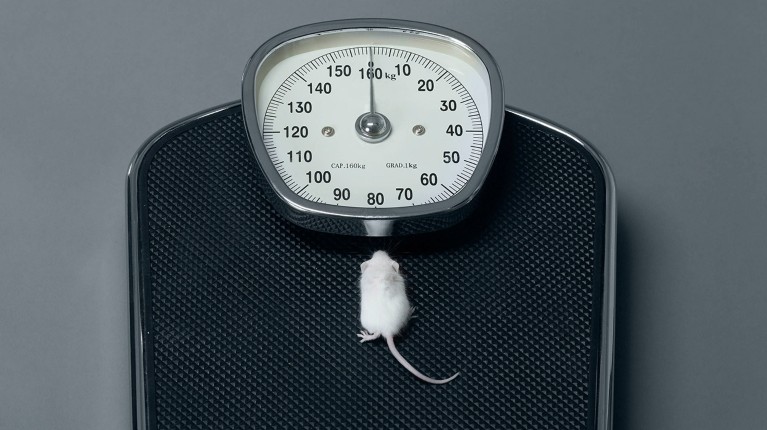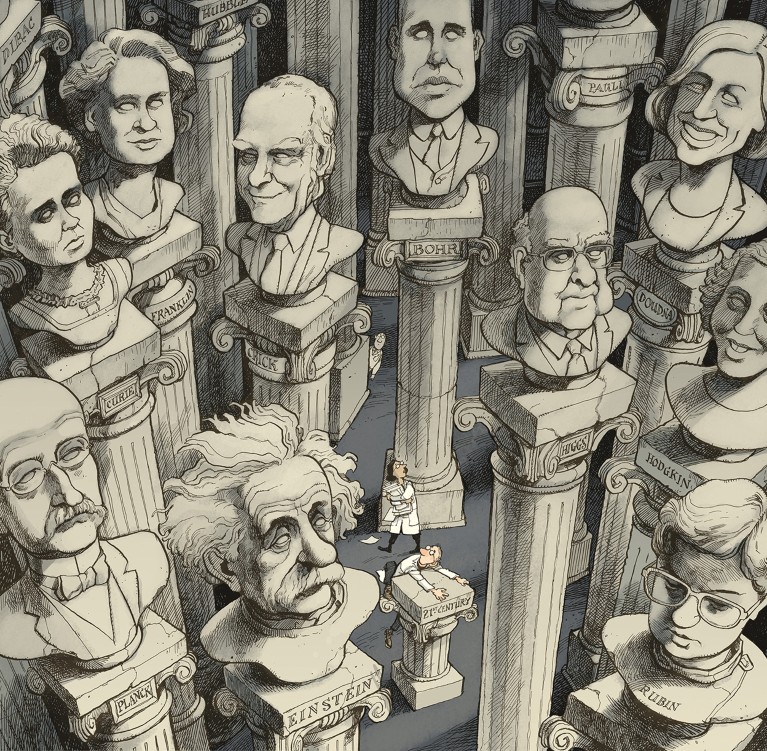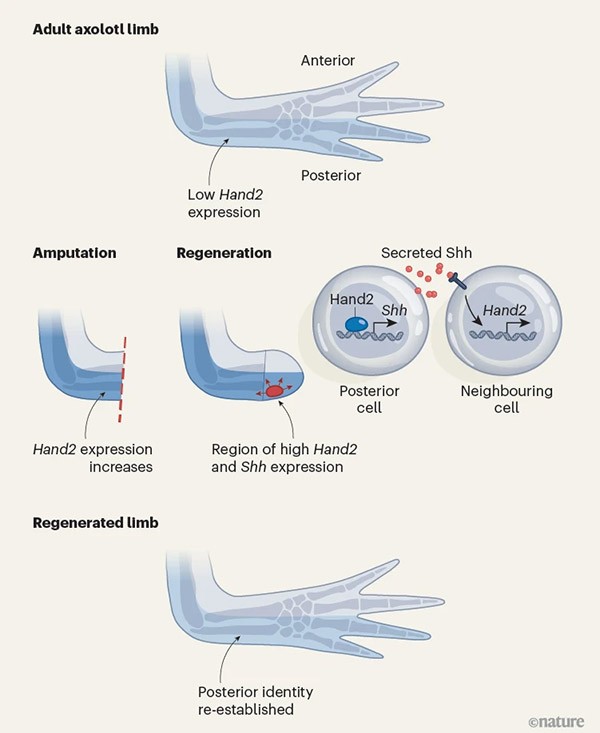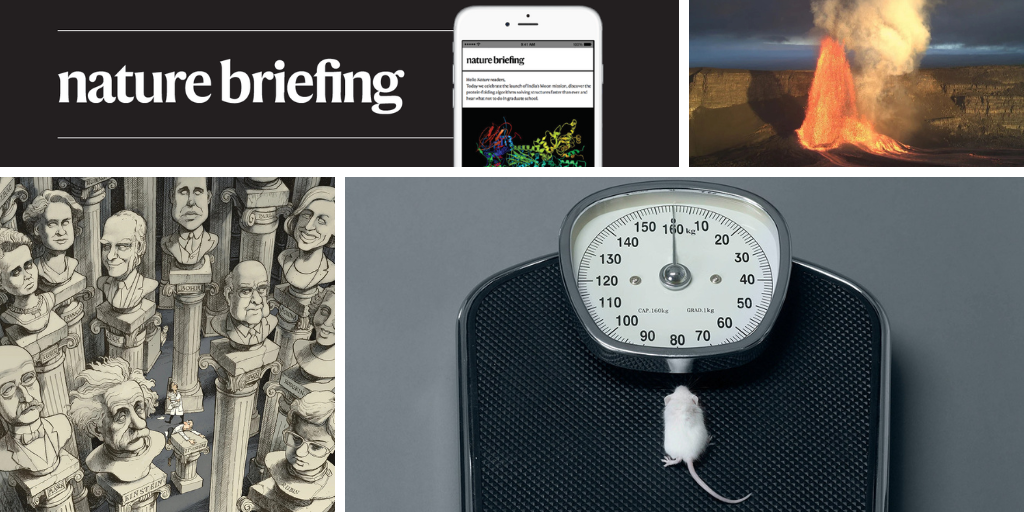You have full access to this article via your institution.
Hello Nature readers, would you like to get this Briefing in your inbox free every day? Sign up here.

Gene-edited mice were used to elucidate the role of cysteine in weight loss.Credit: Connect Images/Alamy
Mice that can’t make cysteine —an amino acid found in high-protein human foods such as meat and whole grains — lose weight extremely quickly. Researchers found that mice that lack the enzyme cystathionine γ-lyase — which breaks down larger molecules into cysteine — lost 30% of their weight in one week, when their diet also lacked foods containing cysteine. Mice with the enzyme did not lose weight, even when their diet lacked cysteine. The findings could lead to the development of drugs targeting the amino acid in the future.
Material from Earth’s dense metallic core appears to be leaking out — and has been pushed all the way to the surface by plumes of hot magma. Researchers found that the relative abundance of ruthenium isotopes — versions of the same element with different atomic weights — in rocks from Hawaii’s volcanic islands was substantially different from that seen elsewhere in Earth’s crust. The evidence is compelling, but it’s too soon to completely rule out alternative explanations, says geochemist Forrest Horton.
A flood of papers making misleading health claims is probably the product of artificial intelligence tools scraping openly available data. In an analysis of papers that used data from the US National Health and Nutrition Examination Survey, researchers spotted over 300 papers that linked one variable, such as vitamin D levels or sleep quality, with a complex disorder, such as depression or heart disease, ignoring the fact that these conditions have many contributing factors. The papers were “extremely formulaic”, says biomedical scientist and study co-author Matt Spick, and “could easily have been generated by large language models”.
Reference: PLOS Biology paper
The US Department of Governmental Efficiency (DOGE) — led by billionaire Elon Musk — is the driving force behind the unprecedented cuts to research grants at the National Institutes of Health (NIH). Sworn testimonies from top NIH officials reveal that a DOGE representative directed them to terminate hundreds of specific projects. Since early May, DOGE has also been screening all NIH awards before they’re released, according to internal correspondence that Nature obtained. That DOGE has usurped the NIH’s decision-making power is a flagrant example of political interference in the scientific process, says Gretchen Goldman, president of the Union of Concerned Scientists, an advocacy group.
Features & opinion

Illustration: David Parkins
In 2023, researchers published an analysis that the ‘disruptiveness’ of papers and patents has dropped over time — and struck a nerve. The research has its critics, but there is a widespread belief that groundbreaking innovation is getting harder to achieve, along with many contrasting theories as to why. As the debate continues, researchers are starting experiments to try to better quantify groundbreaking work — and suggesting strategies that could promote it.
Reference: Nature paper (from 2023)
Many low- and middle-income countries (LMICs), Indigenous Nations and communities and small states are missing from debates around space activities, says a group of academics and Indigenous scholars. Such marginalization excludes these groups from discussions around space activities that use their lands and can affect Indigenous cosmologies. Global space treaties can offer ways forward, but the dialogue surrounding them must address historical inequities and elevate marginalized voices in space sciences. “Consent begins with consultation and a commitment to prevent, manage and resolve conflicts,” the authors write. “Let’s build a shared future in space together.”
Infographic of the week

Axolotl tissues can ‘remember’ their orientation, which helps them regrow lost limbs. When the limb first grows, it establishes an ‘anterior-posterior’, or ‘front-back’, axis. In adulthood, posterior cells produce low levels of a molecule called Hand2 as a form of positional ‘memory’. If a limb is lost, the expression of Hand2 in remaining tissue increases, which kick-starts the production of a protein called Sonic hedgehog (Shh). During regrowth, Shh acts as a messenger: it tells nearby cells to up their production of Hand2, which lets them know to grow as posterior cells. (Nature News & Views | 7 min read, Nature paywall)
Today I’m wondering if I could beat a grandmaster at chess. The answer is undoubtedly no, but I might stand a chance if I work with a hundred thousand other people.
I wouldn’t be the first to try: chess.com recently hosted an online chess match that pitted Magnus Carlsen — the world’s chess number 1 — against 143,000 participants who voted on their next move. The 46-day match ended on Tuesday in a thrilling… draw.
Help us plan out this newsletter’s next move by sending your feedback to [email protected].
Thanks for reading,
Jacob Smith, associate editor, Nature Briefing
With contributions by Flora Graham
Want more? Sign up to our other free Nature Briefing newsletters:
• Nature Briefing: Careers — insights, advice and award-winning journalism to help you optimize your working life
• Nature Briefing: Microbiology — the most abundant living entities on our planet — microorganisms — and the role they play in health, the environment and food systems
• Nature Briefing: Anthropocene — climate change, biodiversity, sustainability and geoengineering
• Nature Briefing: AI & Robotics — 100% written by humans, of course
• Nature Briefing: Cancer — a weekly newsletter written with cancer researchers in mind
• Nature Briefing: Translational Research — covers biotechnology, drug discovery and pharma


